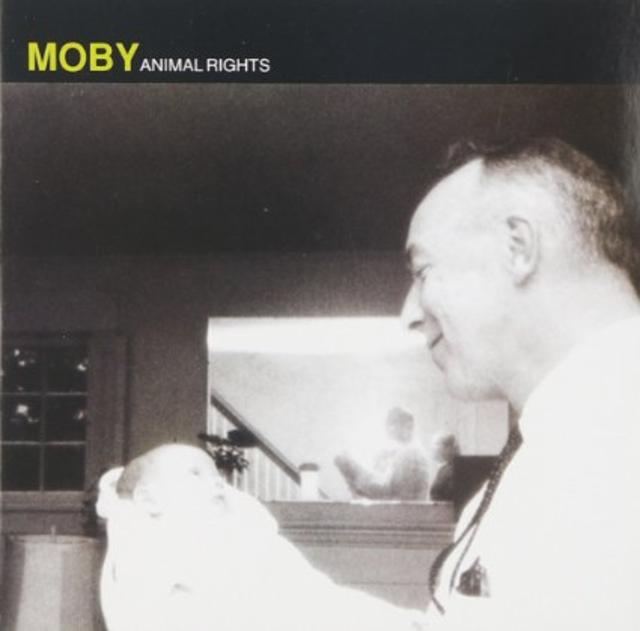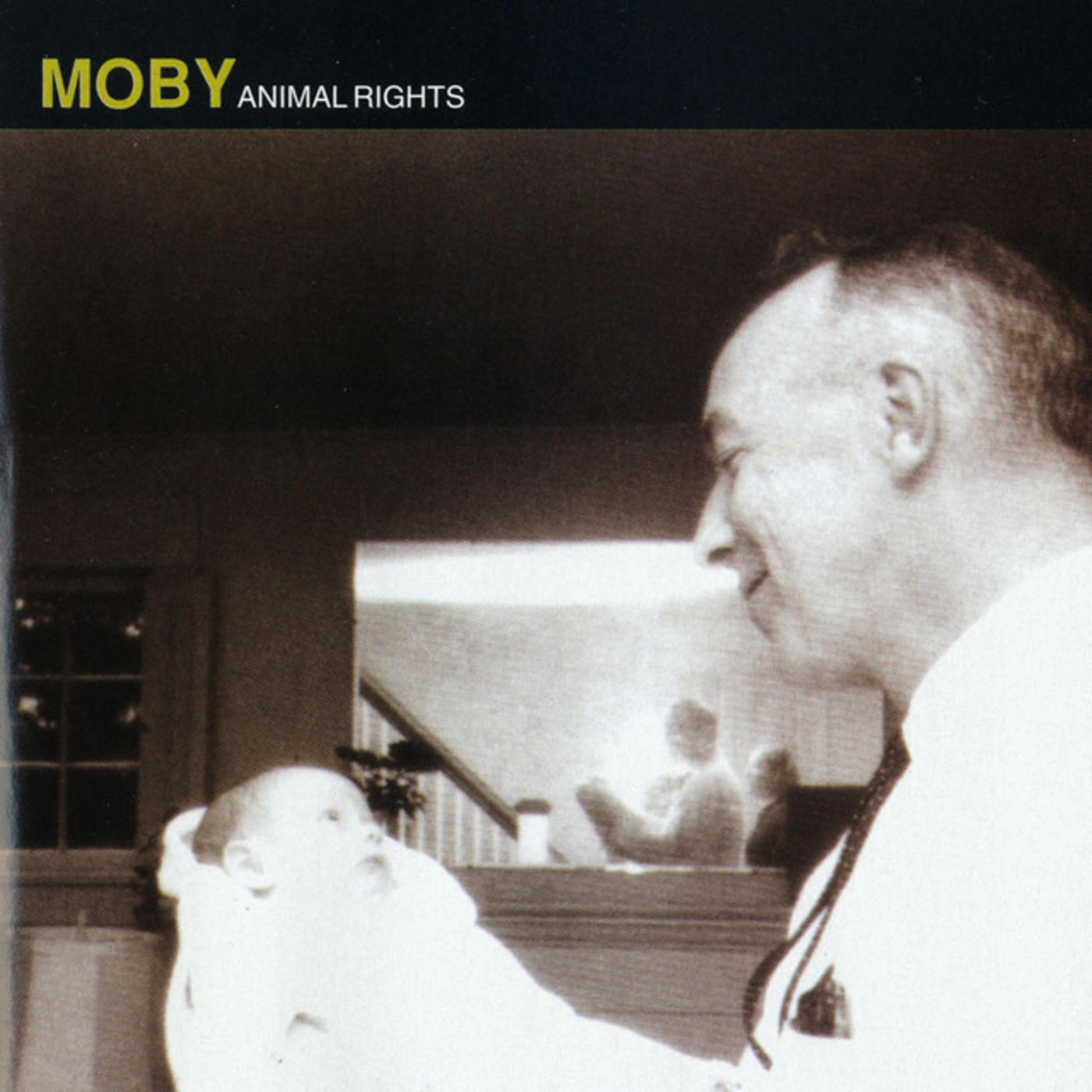Happy 20th: Moby, Animal Rights

20 years ago today, Moby went punk for the second time in his musical career, but this time he did it in the most polite way possible: when he delivered his fourth album to the masses in 1996, he pointedly included a line at the bottom of the credits which read, “Please listen to Animal Rights in its entirety at least once.”
Richard Melville Hall - yes, if you're wondering, he took his stage name from the title of a book by the man who's apparently his great-great-great-granduncle, Herman Melville - started his music career in 1982, serving as guitarist in a hardcore band called The Vatican Commandos. They released a trio of EPs and a few other songs on a few different compilations, and then they broke up in 1985, which is why you've probably never heard of them. It's also why so many people were blindsided when Moby decided to follow up his hugely successful 1995 album Everything is Wrong by completely confusing everyone who thought they understood what sort of music he was making.
Even more perversely, Animal Rights kicked off with “Dead Sun,” a track that made it seem as though he hadn't changed his style at all, but that seems to have been a decision by his US label, Elektra, since the UK version of the album didn't include “Dead Sun” at all. It did, however, turn up on the bonus disc, Little Idiot, which consisted of nine tracks of ambient material that far more closely resembled what he'd been doing on Everything is Wrong.
At the time of its release, Animal Rights earned a certain amount of college radio airplay in America with its first single, a cover of Mission of Burma's “That's When I Reach for My Revolver,” but it also earned the ire of Mission of Burma fans because of Moby's decision to acquiesce to the requests of MTV and the BBC and change the lyrics of the song's title line to “that's when I realize it's over.” Moby's comment at the time was that he didn't consider the changing of the line to be that important, but the tweak didn't do anything to help the single's success: it stalled at #50 in the UK and didn't even enter the Hot 100 in the US. It did at least manage to chart in one other European nation, but it can't be said to have been big in Belgium, sadly, unless you consider hitting #64 to be big.
Eric Harle, who managed Moby during this period, discussed the effect of Animal Rights with HitQuarters in 2003. “It buried him completely, because it wasn't even slightly interesting to most media and it didn't connect with a large part of his still developing fan base,” said Harle. “People were confused as to what Moby really was. Consequently, although he had had a good start, he managed to wipe out all of his early good work and we found ourselves struggling for even the slightest bit of recognition. He became a has-been in the eyes of a lot of people in the industry.”
Thankfully, Moby managed to recover from his commercial setback: his subsequent album, I Like to Score, earned him a #8 single in the UK and a #1 dance hit in the US, and by 1999 he'd even earned a top-15 single with “South Side,” featuring vocals from Gwen Stefani.
As for Animal Rights, despite its commercial fate, it's an album that demands to be heard at least twice before deciding it's not for you. The first time, of course, is for Moby, because he asked you nicely, and the second time is for yourself, during which time you just need to remember one thing: it's perfectly fine if it's not to your tastes, but the fact that it's unlike anything else in Moby's solo catalog doesn't make it a bad album. It just makes it different.

